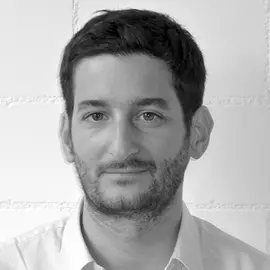Natural Language Processing Fundamentals
ApplyAt a glance
Qualification:
Certificate of attendance "Natural Language Processing Fundamentals" (2 ECTS)
Start:
on request
Duration:
5 evenings
Costs:
CHF 1'150.00
Location:
- ZHAW Zürich, Building ZL, Lagerstrasse 41, 8004 Zürich (Show on Google Maps)
- close to Zürich main station
Language of instruction:
English
Objectives and content
Target audience
In recent years NLP (natural language processing) based on NN (neural networks), especially DL (deep learning) models has made tremendous progress. Be it in the automatic analysis of text data, machine translations, speech-to-text tasks or the generation of text, etc.: the state-of-the-art methods as e.g. used in smart phones or home assistance systems are based on novel NN and DL approaches.
NLP also becomes increasingly important in the life sciences, whether it is the analysis of large amounts of text data, for example in pharmaceutical research, or the analysis of genomic data. As of today all big tech companies as well as numerous start-ups use NLP technologies or are in the process of developing DL NLP techniques.
The aim of the course is to bring these techniques to practitioners such as data scientists, software developers and research managers. It will enable a hands-on understanding of the state-of-the-art methods and the background theory and programming skills to start on with their own NLP projects.
Aimed at decision makers and scientific or engineering personnel such as data scientists, software developers, researchers or research managers who would like to acquire the know-how and skills of state-of-the-art NLP methods based on NN/DL approaches in order to work or initiate their own NLP projects in their application area.
Objectives
The NLP course enables the participants to acquire an understanding of the state-of-the-art methods in NLP with DL and the coding skills to start with NLP projects in life sciences domains on their own. In terms of specialist content, the course focuses upon the following techniques:
- the main NN/DL models used in NLP
- the DL approach to NLP with several application examples
- programming in Python/Tensorflow
The participants...
- learn the theory and application of DL models used in NLP
- understand the key concepts of the DL approach to NLP
- get to know a wide sample of possible application examples
- learn how to approach their own NLP projects
- get the skills in Python and Tensorflow to work on Dl-based NLP projects
Content
- Handling and pre-processing of textual and speech data
- Bag-of-word models
- Distributed word/text representations
- Basics of neural network and deep learning for NLP
- Basics of recurrent neural networks
- Introduction to Python and Tensorflow
- Study and apply theory and skills to problems such as text classification, semantic analysis, topic modelling, machine translation, generative models, etc.
- Study and work on specific NLP projects
CAS in Digital Life Sciences
This module is part of the CAS in Digital Life Sciences continuing education programme, but can also be attended independently of the CAS.
More information here: CAS in Digital Life Sciences
Overview continuing education
You can find an overview of our continuing education programmes in the field of computational science and artificial intelligence here.
Methodology
Lectures, coding examples and exercises, group work, self-study (preparation and follow-up) and e-learning.
Enquiries and contact
-

Martin Schüle has a PhD in Neuroinformatics from ETH Zurich. As a senior researcher at ZHAW he works on all aspects of data science, machine learning and deep learning. His knowledge and research has been applied with great benefit in numerous applied industry projects. A special focus of his work lies on NLP methods, a field that has already shown great success and is becoming increasingly important in the life sciences.
Provider
Application
General terms and conditions
General terms and conditions for continuing education courses
| Start | Application deadline | Registration link |
|---|---|---|
| on request | weiterbildung.lsfm@zhaw.ch |